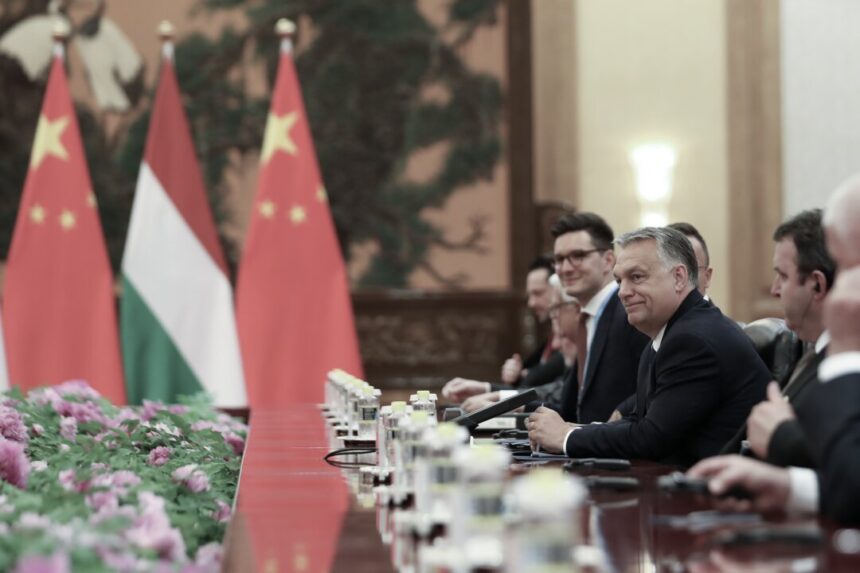Commentary
Budapest’s close ties with Beijing have implications for European and U.S. national security. As a member of NATO and the European Union, Hungary holds the power to veto operations of either organization. When Hungary assumes the rotating presidency of the EU in July, Mr. Orban’s influence in shaping the bloc’s direction will significantly increase.
Hungary’s alignment with China could impact U.S. economic competitiveness. Budapest aims to leverage Chinese investment to outpace the United States in electric vehicle battery production. China currently dominates the world’s lithium-ion battery production capacity, with the U.S. and Hungary trailing at distant second and third places with 6% and 4% shares, respectively.
China’s state-owned Fiberhome Telecom Tech intends to establish a $22 million base in Hungary for optical cable production, posing a potential threat to secure communications where implemented. Fiberhome is a subsidiary of the Wuhan Research Institute of Posts and Telecommunications Company, which was added to the U.S. export control list in 2020.
Mr. Wang expressed interest in enhancing cooperation with Hungary in areas such as counter-terrorism, combating transnational crimes, and security and law enforcement capacity building through the Belt and Road Initiative, aiming to elevate law enforcement and security cooperation as a focal point of bilateral relations.
Despite Beijing’s autocratic regime, Mr. Orban’s pro-China stance remains steadfast. While Budapest’s NATO and EU membership makes Mr. Orban’s overt friendliness towards the Chinese Communist Party unique.
Given Mr. Orban’s close ties with Russian President Vladimir Putin, he may overlook Chinese exports of dual-use military materials that end up in Russian drones downed in Ukraine. The Biden administration is contemplating sanctions on Chinese banks facilitating trade with Russian arms manufacturers as a response to this issue.
Gergely Gulyas, Mr. Orban’s chief of staff, emphasized China’s perceived strength compared to the EU and Hungary’s interest in enhancing economic ties with the country.
“Hungary believes that imposing ideological barriers on economic relationships is not worthwhile, and we welcome the Chinese president’s two-day visit,” stated Mr. Gulyas.
Prioritizing a “stronger” nation over a more democratic one may expedite the global spread of authoritarianism. Budapest may discover that the closer it aligns with Beijing as a subordinate partner, the more isolated it becomes on the world stage. This trajectory has not yielded positive outcomes for countries like Russia, Iran, North Korea, Burma (Myanmar), Cuba, or Venezuela, and Hungary is likely to face similar challenges.
Views expressed in this article represent the author’s opinions and do not necessarily reflect those of The Epoch Times.
Please rewrite the following sentence to make it more concise:
“Due to the fact that we were running late, we decided to take a taxi to the airport instead of waiting for the bus.”
“We took a taxi to the airport because we were running late.”
Source link








